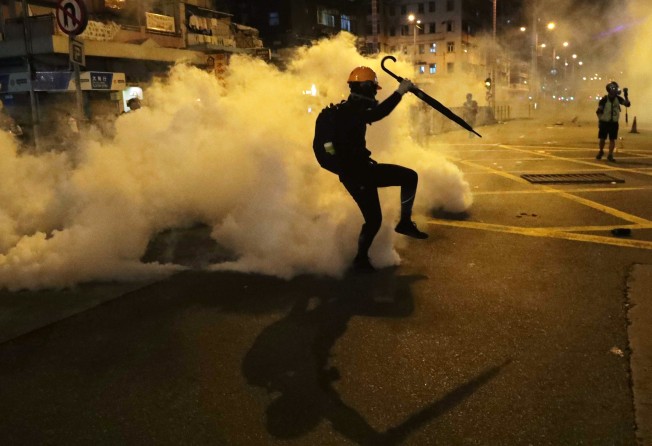Small steps by the government could defuse Hong Kong’s biggest crisis
- The divide between the government and the opposition is not as wide as it may seem

If it is the protesters’ plan to hold Hong Kong’s economy hostage to press for their ‘five demands’, they should beware that the hostage itself might soon perish before any of their demands can be fulfilled. Our economy is facing the worst crisis since the severe acute respiratory syndrome (Sars) outbreak in 2003, as business confidence is battered by the double whammy of the US-China trade war and the escalating domestic strife following the Fugitives Bill amendment.
Shuttered shops and blockaded thoroughfares are a sorry but increasingly common sight in Hong Kong, and it will not be long before we see a wave of bankruptcies across all business sectors. As more and more of the police’s limited manpower is being diverted to quell street riots, we begin to fear for our lives and properties. When political stability and law and order are at risk, Hong Kong’s sovereign credit ratings will tumble, and that will spell the end for Hong Kong as an international financial and business centre.
The government is now caught between a rock and a hard place. It seems to be at the end of its wits over how to curb the rioting, yet yielding to the protesters’ exorbitant demands is a non-starter. It is indeed plain to see why most of these demands cannot be acceded to, like dropping all the charges against the arrested demonstrators. Committing to the ‘twin universal suffrage’ for the Legislative Council and the chief executive elections requires a major constitutional debate which, though desirable, cannot obviously be done in the short term.
I can also appreciate the government’s reluctance to appoint an independent commission of inquiry at this stage. We are still in the midst of an evolving crisis, and the overstretched police force can well do without another extensive investigation which would inevitably divert their attention and resources.
The other two demands (withdrawing the bill and declassifying the June 12 incident as a riot), however, should not be lightly dismissed, because they carry practically no political cost to the government, or any conceivable backlash from the community or the police.
In response to the Hong Kong and Macau Affairs Office’s assertion that this movement carries ulterior motives, the pan-democrats have come out to deny it, stressing that their primary concern is still the bill itself. The most logical next step, therefore, would be for the chief executive to say categorically that the bill is withdrawn, instead of using other adjectives that she says mean the same thing. Her reluctance to utter the word ‘withdraw’ is baffling to say the least, as it obviously does not stem from any behest from Beijing, but rather a quixotic defence of her own choice of semantics. Doing so might not be sufficient to put a stop to all violence at once, but would immediately take the winds out of the sails of the movement by winning over the moderate segment of the community, and the million-odd peaceful marchers who took to the streets in protest of the bill. It will at least show that the chief executive does think like the rest of the Hong Kong population after all.
In a similar vein, it will cost the government nothing now to declassify the June event as a riot. Whatever the government calls it will not jeopardise the prosecution of the arrested offenders, as the government has a choice of offences to charge them with apart from rioting. The government will not be seen to be backing down because, with a string of increasingly violent events taking place afterwards, the nomenclature of the event has now become irrelevant.
So, the divide between the government and the opposition is not as wide as it may seem, if only the government is willing to take some small steps. The window for doing this is closing soon. And no one wants to see the People’s Liberation Army descending on Hong Kong.
Raymond Young Lap-moon is a former civil servant and currently CEO of the Chinese Manufacturers’ Association